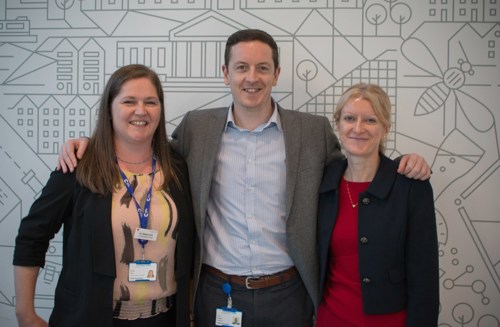Different kinds of fellows are described below;
-
- Laboratory research-focused clinical fellows
- Predominantly based in a laboratory under the supervision of an academic consultant and/or a scientific mentor
- Suitable for out-of-programme/post-Certificate of Completion of Training (CCT) UK trainees or senior trainees from overseas, who wish to pursue an academic career path
- Involves working towards a formal research qualification (e.g. Doctor of Philosophy [PhD] or Masters' degree (in oncology or research) and may involve writing grant applications or research protocols
- Would have limited, defined clinical commitments linked to the research project
- Clinical research-focused clinical fellows
- Predominantly based within the department of medical oncology under the supervision of a consultant clinician
- Suitable for out-of-programme/post-CCT UK trainees or senior trainees from overseas, who wish to pursue an academic career path
- 2 different possibilities
- 2a) Formal clinical research - working towards PhD, MD or Master’s degree in research (MRes): These fellows have chosen a formal training programme for either a PhD, MD or Masters. Depending on the project, this will usually involve performing and publishing self-led clinical research and audit activities including protocol-writing. Information about PhD programmes are available on the University of Manchester webpage.
- 2b) Clinical research fellow without formal track - these are fellows that have been accepted within different disease groups and will have planned projects (usually 1 year or more dependent on funding). Depending on the projects, this will involve splitting time between research and a moderate clinical commitment and may involve clinical research and audit activities, including protocol-writing. These fellows will gain significant research experience but will not be working towards a formal research qualification.
- Service provision-focused clinical fellows
- The aim of these fellow posts is to gain clinical experience or disease-specific expertise
- Suitable for all levels of trainees from UK or overseas, who wish to gain experience in medical oncology
- Although not specifically here to pursue research, these fellows are expected to participate in research clinics and audit activities (as part of their experience of training)
- The majority of the working week will be dedicated to clinical commitments


